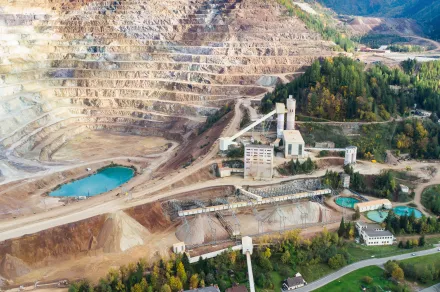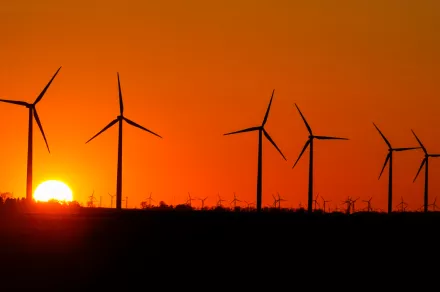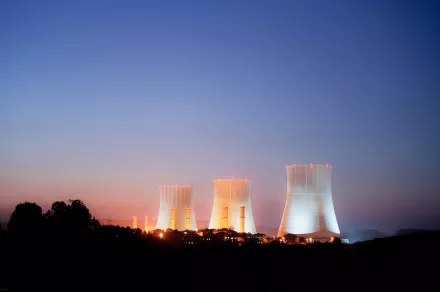

How the Fight Against Climate Change Can Overcome Geopolitical Discord
Meghan L. O’Sullivan and Jason Bordoff argue in Foreign Affairs that more ambition is needed with global energy transition







Our Mission
The Geopolitics of Energy Project explores the intersection of energy, security, and international politics. The project, launched in 2011, aims to improve our understanding of how energy demand and supply shape international politics – and vice versa. It also endeavors to inform policymakers and students about major challenges to global energy security and, where possible, to propose new ways of thinking about and addressing these issues. The project focuses both on conventional and alternative energies, as both will influence and be influenced by geopolitical realities.

The Geopolitics of Energy Through History
The project begins from the premise that energy has long shaped the international system, determining great powers, alliances, and outcomes of wars. Coal-rich countries were the first to industrialize in the 1800s; the shift to oil from coal over the next century brought with it a rise in the strategic importance of the Middle East. Similarly, decisions made about energy today will influence what the world looks like tomorrow, just as the political and security events of today – be it the Arab Spring or the devastating earthquake and tsunami in Japan – will shape energy realities.

Understanding Today's Energy Challenges
Harvard's Geopolitics of Energy Project posits that the coming decades will be characterized by dual impulses in the energy realm. Despite the desire to move away from fossil fuels, oil and gas will remain dominant in the global energy mix – and the energy world will continue to be consumed by the need to find oil and gas to meet growing global demand. Politics and security will be intimately interwoven in this quest.
At the same, climate and security pressures are real and, over time, technology and policy will enable the world to move away from fossil fuels to more sustainable and clean energy sources. As has been the case throughout the course of history, this shift in the global energy mix will bring with it major political and security changes. Together, these two factors – the drive to find oil and gas and the shift toward alternative energies – will be important determinants of the world in which we live.
History shows us how the geopolitics of energy have evolved as new discoveries were made and institutional, economic and technological changes occurred. Today, policymakers, business people, and scholars face a number of new realities in assessing the energy system.

Focus Areas of Research and Analysis
Changing patterns of economic growth in the OECD and emerging economies, particularly China.
Political change and added pressures for reform, especially in the Middle East.
The development of new methods and mechanisms by which to extract existing oil and gas resources, particularly shale oil and gas and deep water techniques.
Environmental pressures and the need for adequate regulation.
The efficiency and professionalism – or lack thereof – of national oil companies (NOCs).
Growing resource nationalism.
Emerging technologies that will change consumer preferences and enable, over time, the commercial use of renewable energy sources.
Domestic and international actions to address climate change.
Changing foreign policy practices of the United States and its international partners.
National strategies of key producer and consumer countries.

Geopolitical Consequences
New realities in assessing the energy system will bring with them a host of geopolitical consequences, some which may include:
Evolution in the strategic importance of the Arabian Gulf.
Changes in the global investment climate for the discovery and development of oil and gas resources.
The fragility or robustness of particular countries, such as Russia, and their ability to use energy as a foreign policy lever.
The propensity for the United States to use sanctions as a foreign policy tool.
The emergence of new international institutions to manage a more complex energy landscape.
Growing or diminishing dependence on the market mechanism to deliver energy supplies.

Our Approach
The Geopolitics of Energy Project at the Harvard Kennedy School's Belfer Center for Science and International Affairs endeavors to address such issues. The project does so by starting with rigorous efforts to understand past and current linkages between global politics, economics, and security and energy, expanding them over time to explore and explain geopolitical risks and benefits of the energy transitions ahead. The project builds on previous significant work in this field at the Harvard Kennedy School, such as the Energy and Security research program led by Professor Joseph S. Nye, Jr. and Professor David A. Deese in the late 1970s.
Contact
Chloe Holt
Executive Assistant to Meghan O'Sullivan
Phone: (617) 496-8238
Office: Littauer-372
Email: chloeholt@hks.harvard.edu

